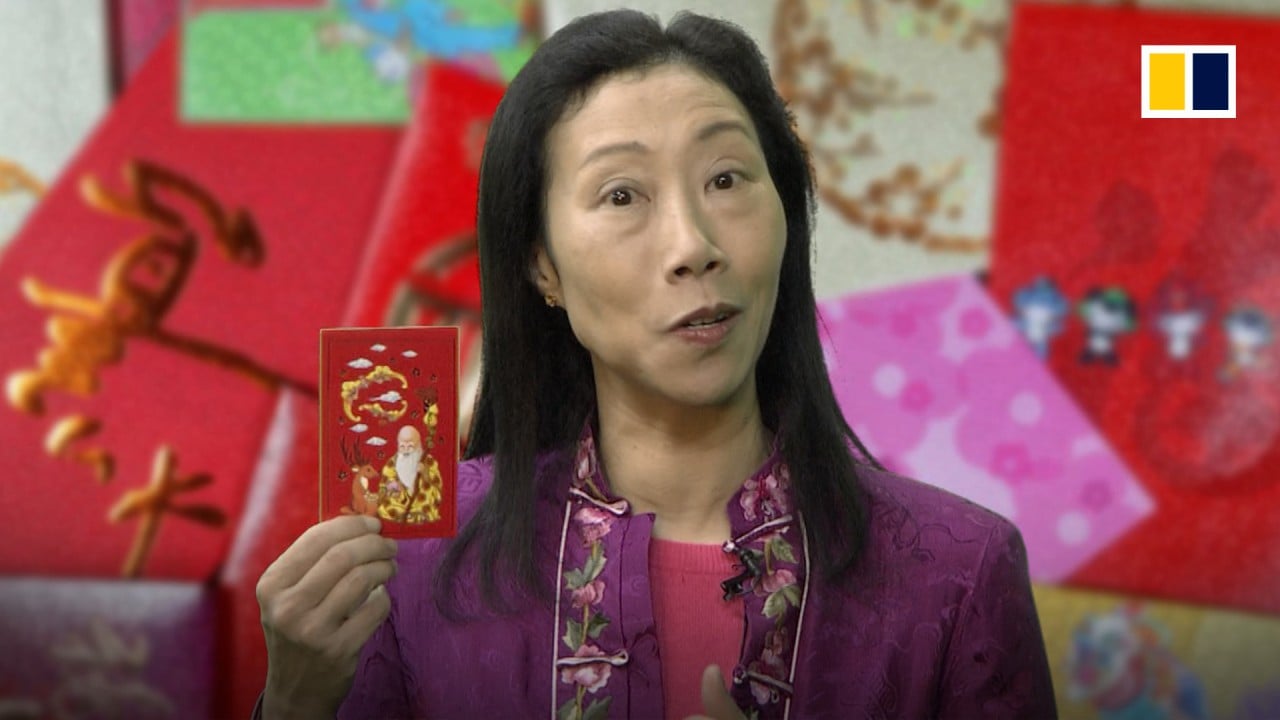
Big Tech’s red packet war for Lunar New Year sees less cash given away as campaigns try users’ patience
- Promises of cash handouts in the form of digital lai see ahead of the holiday amounted to US$1.3 billion, US$250 million less than last year
- Some consumers are getting tired of competing to win just a few yuan each as increasing competition has made such campaigns less valuable to tech firms
Chinese Big Tech companies’ seasonal rush to offer billions of yuan in electronic red packets, known as lai see in Cantonese, for the Lunar New Year holiday fell short of last year’s offerings, a sign of intensified competition among the country’s consumer-facing technology giants.
Tencent, one of the earliest initiators of the red packet battle, did not announce any cash handouts on its super app WeChat this year, but has doubled down on its innovative campaign around the red packet. Despite this, 688 million people participated in activities involving digital red packets on the social platform, the company said on Tuesday.
Internet firms wage digital red packet war during Lunar New Year
The “free money” offered through playing games and other promotions in mobile apps has become a staple of Lunar New Year celebrations for many Chinese consumers over the past several years.
This year’s holiday marked the seventh time that Feng He, a resident of the eastern city of Suzhou, collected Alipay’s Five Fu – the character meaning good fortune – which comes with a red packet reward on Lunar New Year’s Eve. In 2016, when Alipay initiated the campaign, she received 271.66 yuan. That amount has shrunk to just a few yuan in the intervening years.
Alipay has changed the rules to make it easier to get a cut of the 215 million yuan pot, but the number of people taking part in the campaign has exploded amid greater awareness and smartphone penetration in China. However, Feng said she still finds it interesting to participate.
Ant earmarked 500 million yuan in handouts through Alipay ahead of the holiday, the same amount it offered last year. Short video giant Kuaishou said it would give out 2.2 billion yuan, an increase of 100 million from the previous year. Douyin promised to hand out 2 billion yuan to the app’s users, while internet search firm Baidu said it would offer 2.2 billion yuan.
Using red packets has become an easy way for platforms to boost user engagement since Tencent’s WeChat started using the practice in 2014 to promote its digital wallet.
“If a company stops doing so, it might lead to a crack in its reputation among users,” said Zhang Shule, an independent analyst of China’s internet and technology industries.
Still, the total amount handed out by Big Tech firms this year fell short of the more than 10 billion yuan give away last year. Such campaigns have become complicated by market saturation and Beijing’s crackdown on the tech sector throughout 2021.
“Platforms hope to grow their user base from 200 million users to 300 million or 400 million, but this year the things have changed, as they found little hope in incrementally growing users among Chinese netizens,” said Zhang Yi, chief executive of iiMedia Research.
Red packet giving gets a digital update in China
After a period of rapid growth, China’s mobile internet industry has slowed in recent years and started to stagnate. The number of monthly active mobile internet users reached 1.16 billion last June, a year-on-year increase of just 0.83 per cent, according to data from QuestMobile. In 2017, growth topped 17 per cent.
Chinese tech firms have put increasing emphasis on turning red packets into direct leads for sales and profits, according to iiMedia’s Zhang. With this focus on sales, they are becoming “more realistic”, he said.
However, there is growing doubt about the benefits of this sponsorship. Kuaishou spent about 5 billion yuan to sponsor the 2020 gala, but it did not help the company avoid widening losses, which reached 116.6 billion yuan for the year.
Users may also be tiring of the increasingly difficult race to snap up red packets.
Jin Zining, a secondary schoolteacher in the mainland who has taken part in red packet campaigns since 2018, said she tried Douyin’s campaign but stopped because of the platform’s complex rules. “It took me only two minutes to give up, when I only got two cards after finishing a few required tasks,” Jin said.
Feng, the long-time Five Fu participant, said she tried to take part in an interactive game during the 2019 Spring Festival Gala. The game from Baidu, the gala’s sponsor that year, had viewers shake their smartphones with the search app open. With just a few yuan in winnings, Feng said she did not even bother withdrawing the money, which would have required creating an account and filling in her bank information.
“They are all gimmicks,” she said. “I’m too lazy to go through the process just to get a few yuan.”


